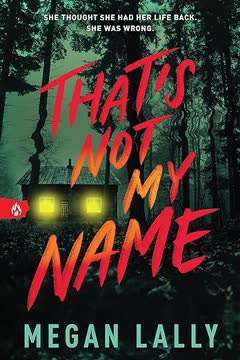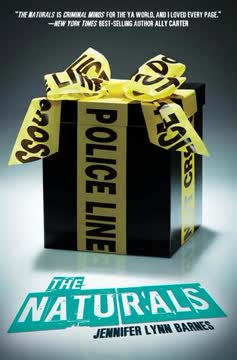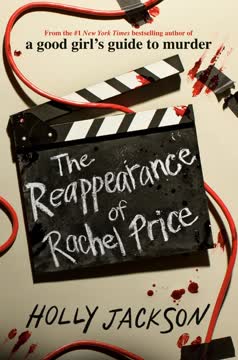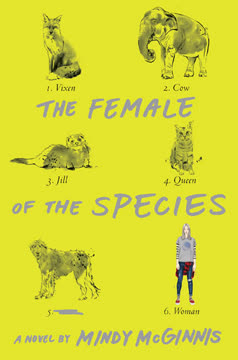Plot Summary
Dead Girl in the Orchard
Cold Creek, Colorado, is a place where hope is scarce and escape is rare. The town's fragile peace is destroyed when the body of thirteen-year-old Mattie Southern is found near a burned schoolhouse, her life ended by violence. The discovery devastates the community, but for her older sister Sadie, it is a wound that will never heal. The murder is brutal, the details too painful for public consumption, and the police investigation quickly stalls. Mattie's death is not just another statistic; it is the catalyst for a journey that will consume Sadie, who cannot accept a world where her sister's killer walks free. The story begins with loss, but it is the desperate love between sisters that will drive everything that follows.
The Podcast Begins
West McCray, a New York-based radio journalist, is drawn into the Southern case by a phone call from May Beth Foster, the girls' surrogate grandmother. With the police investigation cold and Sadie now missing, May Beth pleads for help. West launches a serialized podcast, "The Girls," determined to trace Sadie's steps and uncover the truth behind both girls' disappearances. Through interviews and narration, West paints a portrait of Cold Creek's poverty, the girls' troubled family, and the community's inability to protect its most vulnerable. The podcast becomes a lifeline for those left behind, a way to keep Sadie's story alive and perhaps, to bring her home.
Sadie's Silent Departure
Sadie, nineteen and fiercely protective, leaves Cold Creek in secret. She buys a used car under her middle name, Lera, and discards her phone, severing ties to her past. Her stutter, a lifelong companion, makes her an outsider, but her determination is unwavering. Sadie's journey is not a flight from grief but a pursuit of justice—or vengeance. She is armed with a switchblade and a single photograph: her mother, her sister, and the man she believes killed Mattie. Sadie's voice, fractured but resolute, reveals a girl who has lost everything but her purpose. She is prepared to die if it means avenging her sister.
Sisters and Surrogate Mothers
Sadie and Mattie's childhood is marked by neglect and addiction. Their mother, Claire, is absent more often than not, leaving May Beth to fill the void. Sadie becomes Mattie's protector, sacrificing her own childhood to keep her sister safe. The girls' relationship is complicated by love, resentment, and the weight of responsibility. May Beth's love is steadfast, but she cannot shield them from every danger. The sisters' bond is both their salvation and their undoing, as Sadie's need to protect Mattie becomes an obsession that will drive her to the edge.
The Hunt for Keith
Sadie's quest centers on finding Keith, a man from her mother's past who once lived with them. Known by many names—Keith, Darren, Jack—he is a chameleon, slipping from town to town, leaving devastation in his wake. Sadie's investigation takes her through truck stops, diners, and seedy motels, where she questions those who might have seen him. She encounters people who help and hinder her, but her resolve never wavers. Each clue brings her closer to the truth, but also deeper into danger. Sadie's journey is a descent into the darkest corners of America, and of herself.
The Postcard Catalyst
The fragile peace between Sadie and Mattie is shattered by a postcard from their mother, Claire, postmarked from Los Angeles. For Mattie, it is a promise of reunion; for Sadie, a cruel reminder of abandonment. The postcard becomes an obsession for Mattie, who dreams of escaping Cold Creek to find their mother. Sadie, grounded in reality, refuses to indulge the fantasy, deepening the rift between them. The postcard is both a lifeline and a curse, setting in motion the events that will lead to Mattie's disappearance and Sadie's quest for vengeance.
Small Towns, Big Secrets
West's investigation reveals the ways small towns protect their own, often at the expense of the vulnerable. Cold Creek's residents are weary, struggling to survive, and reluctant to get involved. The police are overworked and under-resourced, and the community's collective trauma breeds apathy. Sadie's disappearance is quickly labeled a runaway case, and Mattie's murder fades from memory. West's podcast gives voice to those who have been silenced, exposing the failures of the systems meant to protect children like Sadie and Mattie.
Dancing with Strangers
On the road, Sadie assumes new identities and infiltrates the lives of strangers. She dances with a boy named Javi in a bar, sharing a moment of intimacy that is both healing and heartbreaking. For a night, she is just a girl, desired and seen, but the weight of her mission pulls her back to reality. Sadie's interactions with others—Javi, Cat, Marlee—are marked by longing and mistrust. She is searching for connection, but cannot afford to let anyone close. Every encounter is a reminder of what she has lost, and what she is willing to risk.
The Man with Many Names
Keith, the man Sadie hunts, is a master of reinvention. He leaves behind a string of aliases, fake IDs, and broken lives. Through interviews and Sadie's discoveries, the extent of his crimes becomes clear: he preys on vulnerable children, exploiting the chaos of poverty and addiction. His relationships with women like Claire and Amanda are calculated, designed to gain access to their daughters. Keith's evil is banal, hidden behind a mask of normalcy. Sadie's pursuit is not just for Mattie, but for every girl he has hurt.
The House of Horrors
Sadie's investigation leads her to abandoned houses and hidden rooms, where she finds the physical evidence of Keith's crimes: children's clothing, trophies, and photographs. In Montgomery, she uncovers a network of abusers, including Silas Baker, a respected community leader. The discovery of child pornography in Silas's secret house exposes the depth of the rot. Sadie's actions trigger a police investigation, but she cannot wait for justice. The horror she uncovers is both personal and systemic, implicating not just individuals but entire communities.
The Truth About Silas
Silas Baker, Marlee's brother and a beloved coach, is revealed as a predator. His arrest shocks Montgomery, dividing the town and shattering the illusion of safety. Sadie's role in exposing him is both heroic and isolating; she is seen as a troublemaker, not a savior. The connection between Silas and Keith suggests a network of abusers, protected by silence and denial. The truth is ugly, and those who speak it are often punished. Sadie's quest for justice is a lonely one, but it brings light to the darkness.
The Road to Langford
Wounded and exhausted, Sadie follows Keith's trail to Langford, breaking into his motel room in search of answers. She injures herself in the process, her body bearing the scars of her journey. The evidence she finds—fake IDs, children's clothing tags—confirms her worst fears. Sadie is running out of time and strength, but she cannot stop. Her pain is both physical and emotional, a testament to the cost of survival. The road is long, and the end is uncertain.
The Bluebird Motel
At the Bluebird Motel, Sadie encounters Ellis, a young man who befriended Keith online. Their encounter is fraught with suspicion and violence, as Sadie demands to know if Ellis is "like him." The scene is a microcosm of the larger story: the difficulty of discerning guilt, the danger of misplaced trust, and the desperation for justice. Ellis, shaken and sympathetic, ultimately helps Sadie, giving her the information she needs to find Keith. The motel is a place of transition, where Sadie's resolve is tested and renewed.
Blood and Trophies
Sadie's journey culminates in Farfield, where she confronts Keith in the home of his latest victim. The encounter is violent and chaotic, leaving both wounded. Sadie's attempt to save a young girl, Nell, is thwarted by fear and misunderstanding. The confrontation is not the cathartic victory she imagined; it is messy, painful, and incomplete. Keith flees, mortally wounded, and Sadie disappears. The aftermath is a void, filled with unanswered questions and lingering trauma.
The Final Confrontation
Keith dies of his wounds, but Sadie's fate remains unknown. The police investigation, spurred by West's reporting, uncovers the full extent of Keith's crimes, linking him to Mattie's murder and the abuse of other children. The evidence is overwhelming, but closure is elusive. Sadie's car is found abandoned, her belongings left behind. The community mourns, but the sense of resolution is hollow. Justice, when it comes, is incomplete and unsatisfying.
Aftermath and Unanswered Questions
West's podcast brings national attention to the case, but the central mystery—what happened to Sadie—remains unsolved. May Beth and Claire are left to grieve, their lives forever altered by loss and guilt. The story becomes a cautionary tale, a reminder of the dangers faced by vulnerable girls and the failures of those meant to protect them. The podcast is both a memorial and a call to action, urging listeners to see the invisible and care for the forgotten.
The Girls Left Behind
Sadie's story is not unique; it is the story of countless girls who go missing, who are hurt and forgotten. The narrative expands to include the other victims—Casey, Anna, Joelle, Jessica, and more—whose names are written on the tags Sadie finds. The cycle of abuse is perpetuated by silence and complicity, but also by the failure to see girls like Sadie as worthy of rescue. The legacy of violence is heavy, but so is the legacy of survival. Sadie's love for Mattie, and her willingness to fight for her, is a testament to the power of sisterhood.
Love, Loss, and Legacy
In the end, Sadie's story is one of love: fierce, flawed, and unyielding. Her journey is a testament to the lengths we go to protect those we love, and the price we pay when we fail. The podcast, "The Girls," becomes a tribute to Sadie and Mattie, and to every girl who has been lost or left behind. The story does not offer easy answers or happy endings, but it insists on bearing witness. In the act of telling and listening, there is hope for change, and for the possibility that no more girls will be lost to silence.
Characters
Sadie Hunter
Sadie is a nineteen-year-old girl defined by her love for her younger sister, Mattie, and the trauma of their shared childhood. Her stutter isolates her, but it also becomes a symbol of her resilience and determination. After Mattie's murder, Sadie's grief transforms into a singular purpose: to find and kill the man responsible. She is resourceful, stubborn, and willing to risk everything for justice. Sadie's journey is both physical and psychological, as she confronts her own pain, the failures of those around her, and the darkness within herself. Her relationships—with May Beth, with strangers on the road, with her own memories—reveal a girl who is both deeply wounded and impossibly strong. Sadie's development is a descent into obsession, but also a testament to the enduring power of love.
Mattie Southern
Mattie is Sadie's thirteen-year-old sister, whose murder sets the entire narrative in motion. She is remembered as bright, hopeful, and desperate for connection, especially with their absent mother. Mattie's longing for love makes her vulnerable, and her trust in the wrong people leads to tragedy. Through flashbacks and memories, Mattie is revealed as both a typical teenager and a symbol of lost innocence. Her relationship with Sadie is complex—marked by admiration, resentment, and dependence. Mattie's death is the wound that cannot heal, driving Sadie's quest and haunting everyone left behind.
May Beth Foster
May Beth is the girls' surrogate grandmother and the manager of their trailer park. She provides stability and unconditional love in a world that offers little of either. May Beth's wisdom and compassion are a lifeline for Sadie and Mattie, but her inability to protect them from harm is a source of deep guilt. She is the emotional heart of the story, representing the possibility of goodness in a broken world. May Beth's relationship with Sadie is maternal, but also fraught with the limitations of what one person can do. Her grief and determination to find Sadie drive the podcast and the search for answers.
Claire Southern
Claire is Sadie and Mattie's mother, a woman consumed by addiction and regret. Her absence shapes her daughters' lives, and her sporadic attempts at connection only deepen their wounds. Claire's relationship with her children is marked by neglect, favoritism (especially toward Mattie), and a desperate need for love she cannot give. Her return to Cold Creek is an attempt at redemption, but it is too little, too late. Claire's development is a study in the cyclical nature of trauma and the difficulty of breaking free from the past.
West McCray
West is a journalist and podcaster who becomes the narrative's second protagonist. Initially detached, he is drawn into the girls' story by May Beth's plea and his own growing sense of responsibility. West's investigation is methodical and compassionate, but also limited by his outsider status. He serves as both narrator and participant, piecing together Sadie's journey and giving voice to those who have been silenced. West's development is a gradual awakening to the realities of violence, poverty, and the failures of the systems meant to protect children.
Keith/Darren/Jack Hersh
Keith is the man Sadie hunts, a serial abuser who moves from town to town under various aliases. He is charming, manipulative, and utterly remorseless. Keith's relationships with women like Claire and Amanda are calculated, designed to gain access to their daughters. His crimes are both personal and systemic, enabled by the silence and complicity of those around him. Keith's development is a study in the banality of evil; he is not a monster in appearance, but in action. His death brings a measure of justice, but not closure.
Javi Cruz
Javi is a teenage boy Sadie meets in Montgomery. Their brief relationship offers Sadie a glimpse of normalcy and affection, but it is ultimately fleeting. Javi's kindness and vulnerability stand in contrast to the violence and mistrust that define Sadie's world. His role in exposing Silas Baker's crimes is pivotal, but he is also a victim of the fallout, losing friends and innocence. Javi represents the possibility of healing, but also the limits of what one person can offer another.
Silas Baker
Silas is a beloved community leader in Montgomery, whose arrest for child abuse shocks the town. His connection to Keith and Marlee Singer suggests a network of abusers, protected by reputation and denial. Silas's crimes are uncovered through Sadie's investigation, but the damage he has done is incalculable. His character is a reminder that evil often hides in plain sight, and that trust can be a weapon.
Marlee Singer
Marlee is Silas Baker's sister and one of Keith's former lovers. Her relationship with both men is fraught with denial, guilt, and complicity. Marlee's refusal to help Sadie is rooted in fear and self-preservation, but her eventual cooperation is crucial to the investigation. She represents the bystander, the person who knows but does nothing, and the cost of silence.
Cat Mather
Cat is a young woman Sadie picks up on the road, herself a runaway fleeing abuse. Their brief encounter is marked by mutual suspicion and fleeting intimacy. Cat's presence in the story highlights the universality of Sadie's experience; she is not alone in her pain or her quest for survival. Cat's decision to abandon Sadie at a gas station is an act of self-preservation, but also a reminder of the limits of solidarity among the vulnerable.
Plot Devices
Dual Narrative Structure
The novel alternates between Sadie's first-person journey and West McCray's podcast transcripts. This structure creates tension and dramatic irony, as readers know more than either protagonist at any given time. The dual narrative allows for multiple perspectives on the same events, highlighting the gaps between personal experience and public perception. The podcast format also serves as a meta-commentary on true crime media, questioning the ethics of storytelling and the consumption of tragedy.
Unreliable Narration and Withheld Information
Both Sadie and West are unreliable narrators, limited by their knowledge, biases, and emotional states. Sadie's trauma distorts her perception, leading her to withhold or misrepresent key details (such as the true nature of her relationship with Keith and the postcard she sent as her mother). West's outsider status means he often misinterprets or overlooks crucial information. The gradual revelation of secrets—through interviews, flashbacks, and discoveries—mirrors the process of investigation and healing.
Symbolism of Objects and Places
Objects like the switchblade, the photograph, the tags cut from children's clothing, and the postcard from L.A. serve as symbols of memory, guilt, and unresolved trauma. Places—Cold Creek, the Bluebird Motel, the abandoned house—are more than settings; they are repositories of pain and evidence. The recurring motif of stars and small miracles offers a glimmer of hope amid darkness.
Foreshadowing and Dramatic Irony
From the opening pages, the narrative is suffused with a sense of impending tragedy. The podcast's retrospective tone, the community's apathy, and Sadie's willingness to die all foreshadow the story's ambiguous, unresolved ending. Dramatic irony is used to heighten tension, as readers often know the dangers Sadie faces before she does.
Thematic Repetition
The novel repeatedly explores themes of sisterhood, the failures of adults, the invisibility of girls, and the cyclical nature of abuse. The repetition of phrases ("I am going to kill a man," "I can't take another dead girl") reinforces the story's emotional core and the persistence of trauma.
Analysis
Courtney Summers' Sadie is a searing exploration of trauma, vengeance, and the invisible lives of girls in a world that too often fails them. Through its innovative dual narrative—alternating between Sadie's raw, intimate voice and the polished, detached podcast of West McCray—the novel interrogates the ethics of true crime storytelling and the voyeurism of tragedy. At its heart, Sadie is about the lengths we go to for love, and the devastation wrought when that love is not enough to save those we care for. The story refuses easy answers or closure; Sadie's fate remains unresolved, mirroring the countless real-life cases that end in ambiguity and pain. The novel's power lies in its insistence on bearing witness—to suffering, to resilience, and to the small miracles of connection that persist even in the darkest circumstances. Sadie challenges readers to see the girls who are so often overlooked, to question the systems that enable abuse, and to recognize the cost of silence. In a world obsessed with true crime, Sadie demands empathy, action, and remembrance.
Last updated:
Review Summary
Sadie is a haunting, heartbreaking novel that deeply affected readers. It follows 19-year-old Sadie as she seeks revenge for her sister's murder. The unique format alternates between Sadie's perspective and a true crime podcast investigating her disappearance. Reviewers praised the raw, emotional writing and complex characters. Many found it difficult to read due to heavy themes of abuse and violence, but ultimately powerful and unforgettable. The ending left some unsatisfied, while others felt it was appropriately realistic. Overall, it was widely acclaimed as a gripping, impactful story.
Similar Books
Download PDF
Download EPUB
.epub digital book format is ideal for reading ebooks on phones, tablets, and e-readers.
















